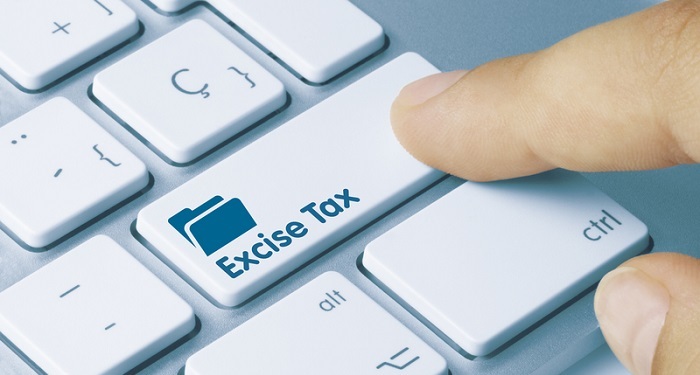
 Data Structure
Data Structure Networking
Networking RDBMS
RDBMS Operating System
Operating System Java
Java MS Excel
MS Excel iOS
iOS HTML
HTML CSS
CSS Android
Android Python
Python C Programming
C Programming C++
C++ C#
C# MongoDB
MongoDB MySQL
MySQL Javascript
Javascript PHP
PHP
- Selected Reading
- UPSC IAS Exams Notes
- Developer's Best Practices
- Questions and Answers
- Effective Resume Writing
- HR Interview Questions
- Computer Glossary
- Who is Who
What is the full form of ECC ?
Introduction
The Excise Control Code (ECC) is a set of regulations and procedures that govern the collection of excise taxes on goods manufactured within a country. The ECC is designed to ensure compliance with excise tax laws and regulations, and to prevent the evasion of taxes on products such as alcohol, tobacco, and fuel.
The ECC typically includes provisions for the registration and licensing of manufacturers and distributors of excisable goods, as well as guidelines for the collection and reporting of excise taxes. It also includes penalties and fines for non-compliance and evasion of taxes.
The ECC plays a critical role in the revenue collection of a country and also helps to regulate the manufacturing and distribution of certain goods. It is also used to control the illegal production and trade of excisable goods. The ECC is regularly updated to reflect changes in tax laws and to address new challenges in excise tax collection and enforcement.
What is ECC?
The Excise Control Code (ECC) is a unique 15-digit alphanumeric code that is used to identify and track excisable goods in India. It is a system of regulations and procedures that govern the collection of excise taxes on goods manufactured within the country. The ECC helps to ensure that excise duty is properly collected and accounted for.

What is the Excise Duty?
Excise duty is a type of tax that is levied on certain goods that are produced within a country. It is an indirect tax that is collected by the manufacturer or producer of the goods. Excise duty is imposed on a wide range of products, including tobacco, alcohol, and petroleum products. The rate of excise duty varies depending on the type of product.
How does excise duty work with ECC?
The Excise Control Code (ECC) and excise duty work together to ensure that excise taxes are collected and enforced properly on excisable goods. The ECC is a set of regulations and procedures that govern the collection of excise taxes, while excise duty is the actual tax that is imposed on the goods.
The ECC outlines the procedures and requirements for registering and licensing manufacturers and distributors of excisable goods, as well as the guidelines for the collection and reporting of excise taxes. It also includes penalties and fines for non-compliance and evasion of taxes.
The excise duty is calculated based on the specific rate or percentage of the value of the goods, as set out in the ECC. The tax is typically added to the price of the item and is collected at the point of production or import.
Use of ECC in manufacturing goods
The Excise Control Code (ECC) plays an important role in regulating the manufacturing of excisable goods. The ECC sets out the procedures and requirements for registering and licensing manufacturers of excisable goods, as well as the guidelines for the collection and reporting of excise taxes.
Manufacturers of excisable goods are required to register and obtain a license under the ECC, and to comply with the reporting and record-keeping requirements set out in the code. They are also responsible for paying the excise duty on the goods they produce.
The ECC also includes penalties and fines for non-compliance and evasion of taxes, which can range from monetary fines to suspension or revocation of licenses.
Types of ECC in India
In India, the Excise Control Code (ECC) is administered by the Central Board of Indirect Taxes and Customs (CBIC) under the Ministry of Finance. The ECC in India is divided into two types
Central Excise Code ? This code governs the collection of excise duty on goods that are manufactured and cleared for home consumption within India.
Service Tax Code ? This code governs the collection of service tax on services provided or agreed to be provided within India.
Conclusion
ECC provides the framework and regulations for the collection of excise taxes on excisable goods, while excise duty is the actual tax imposed on the goods. Together, they work to ensure compliance with excise tax laws and regulations, and to prevent the evasion of taxes on products such as alcohol, tobacco, and fuel.
FAQs
Q1. What is the Excise Control Code (ECC)?
Ans. The ECC is an essential tool for the collection of excise duty in India. The use of the ECC system helps to ensure that excise duty is properly collected and accounted for, and it helps to prevent the evasion of excise duty. There are several types of ECC in India, each of which is used to identify different types of excisable goods.
Q2. What are excisable goods?
Ans. Excisable goods are goods that are subject to excise duty or tax, typically luxury or non-essential items such as alcohol, tobacco, and fuel.
Q3. Who is responsible for paying excise duty?
Ans. Manufacturers and distributors of excisable goods are responsible for paying the excise duty on the goods they produce or import.

